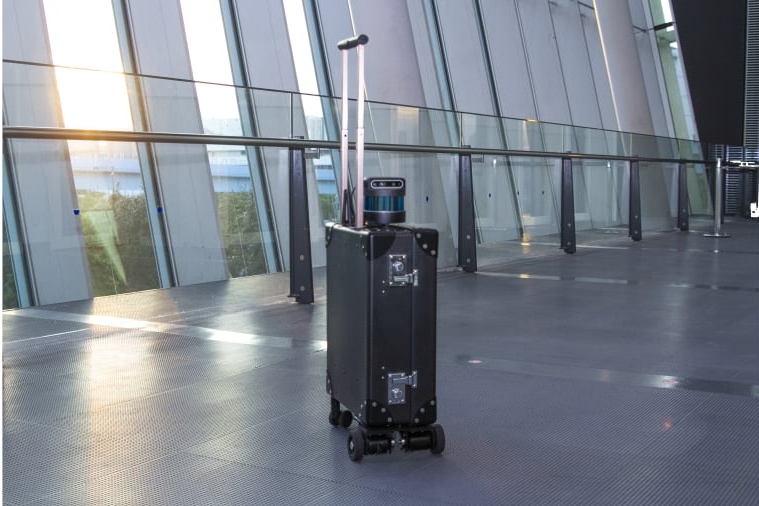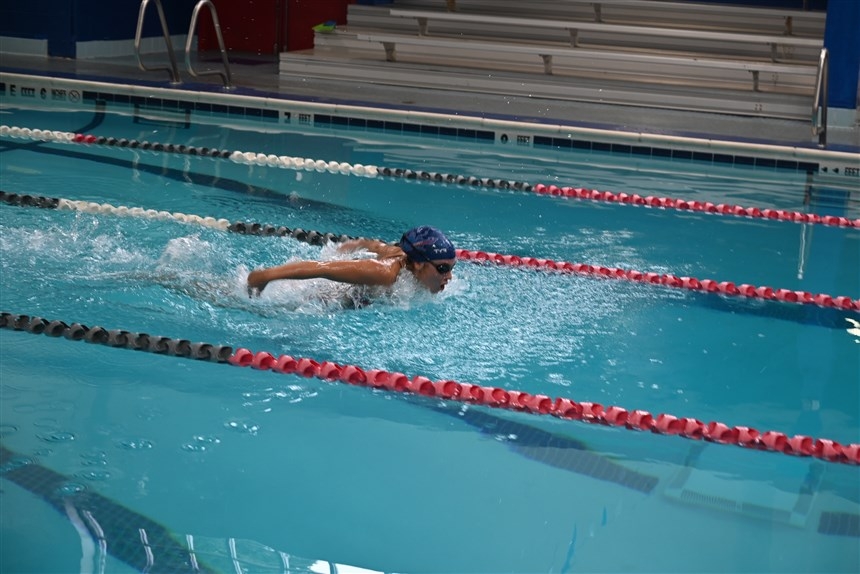
Photo courtesy of CNN
Caption: AI suitcase -- Designed in a collaboration between Carnegie Mellon University, IBM and a number of other Japanese companies, this smart suitcase is designed to help visually impaired people navigate public spaces. Using cameras, sensors and artificial intelligence, it maps its surrounding area. Photo by Masashi Kurahashi/IBM
Next Blog Post
Blind teen swimmer and guide dog make 'perfect pair' in Paralympics quest
Caption: After battling anxiety and depression from losing her eyesight, Anastasia Pagonis found joy in competitive swimming.
New York resident Anastasia Pagonis cheered for the New York Islanders long…
